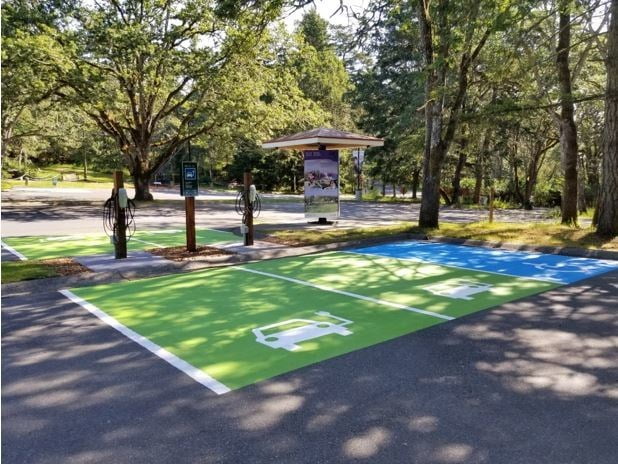
Canada Expands Federal EV Rebate Program Criteria

Transport Canada on Friday announced updates to the federal Incentives for Zero-Emission Vehicles (iZEV) Program designed to expand eligibility criteria for rebates to a wider selection of cars.
According to the Government of Canada, the iZEV Program has already helped Canadians purchase or lease over 141,000 new zero-emission vehicles (ZEVs) since its inception in 2019.
Canadian Minister of Transport Omar Alghabra on Earth Day announced the revamped eligibility criteria for the iZEV Program, which will now cover the purchase or lease of higher-priced cars and would even include larger ZEVs like SUVs, minivans, and pickup trucks.
Under the new eligibility criteria:
- Cars with an MSRP of less than $55,000 CAD for the base trim and up to $65,000 for higher-end variants will qualify for rebates.
- Larger ZEVs must have an MSRP of less than $60,000 for the base model to qualify, and higher-priced versions with an MSRP of up to $70,000 will also be eligible.
As it stands, Tesla vehicles do not qualify for the federal rebate. Recent prices increases to the entry Model 3 axed its eligibility.
Previously, the base trim of a ZEV needed to have an MSRP under $45,000, with other trims not exceeding $55,000, for it to qualify for the federal iZEV Program. The new eligibility requirements will take effect starting Monday, April 25.
“Helping Canadians make the switch to a zero-emission vehicle is win-win-win: it keeps our air clean, helps people save money on fuel, all while positioning Canada as a leader on building and powering these cars,” said Transport Minister Omar Alghabra.
“Today’s announcement is about making sure Canadians have the options they need – whether you want to make your next family car, or your ride to work, a zero-emission vehicle.”
Electric vehicle (EV) leader Tesla priced its entry Model 3 out of the federal rebate program with hikes in November of last year. Right now, the base Model 3 starts at $61,380 in Canada, disqualifying it from the reworked iZEV Program. It will be interesting to see if the EV pioneer can “game the system” as it did once before to qualify the Model 3 for rebates.
Before the Model 3 fell out of eligibility, Tesla took home over 33% of Canada’s federal rebates.
The transportation sector is Canada’s second-largest source of greenhouse gas emissions. In 2021, new zero-emission passenger vehicle sales grew to a 5.6% share of the automotive market according to IHS Markit, up from 3.8% in 2020.
In addition to expanding eligibility criteria for ZEVs, the Government of Canada has changed the definition of longer-range plug-in hybrids (PHEVs) to be based on their electric range instead of battery capacity. As a result, PHEVs with an electric range of 50 km or more will be eligible for a $5,000 rebate, while those under this threshold will continue to be eligible for $2,500.
The Canadian government also announced a sales mandate that will require at least 20% of new passenger vehicles sold in Canada to be zero-emission vehicles by 2026 and at least 60% by 2030, on the road to a goal of 100% by 2035.
Furthermore, the Government of Canada will introduce measures to reduce pollution from medium- and heavy-duty vehicles. Ottawa aims for these vehicles to represent 35% of total sales of ZEVs by 2030.
To that end, the government will develop medium- and heavy-duty zero-emission vehicles regulations to require that 100% of medium- and heavy-duty vehicles sold be ZEVs by 2040 for certain types of medium- and heavy-duty vehicles.
Transport Canada will provide further details on the medium- and heavy-duty vehicles strategy over the summer.


Demand is so high for Tesla in Canada, Elon doesn’t need to lower the price to get more orders.